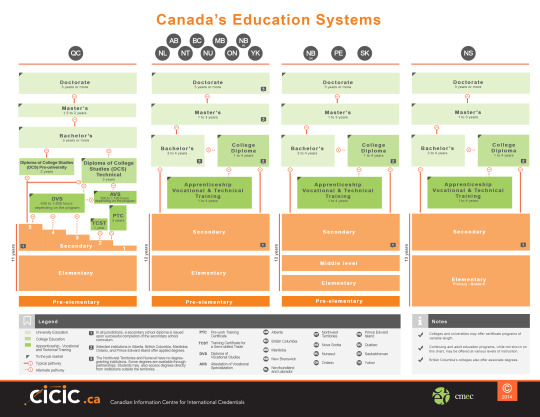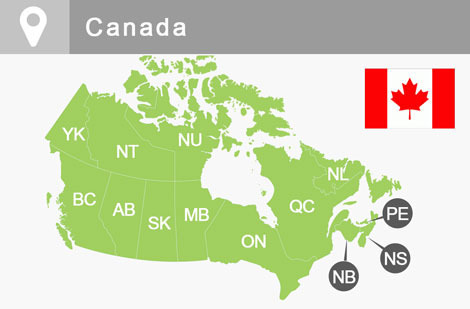#schoolincanada
Explore tagged Tumblr posts
Text
What Are The Benefits of Studying In Canada?
There are many good reasons to consider studying in Canada, but the news team at Global Opportunities has done the research and ranked the top five of these reasons for you.
Five reasons why you should study in Canada
1. Safe and beautiful
Canada is considered a very safe country. It boosts lower crime rates than many other western nations. In addition, its vast geography and expansive unspoiled wilderness are a sight to behold. If nature isn’t your thing, Canadian cities are full of culture, museums, galleries, and exciting things to do.
2. Multicultural environment
Multiculturalism is a trademark of Canada. Everyone is welcomed and embraced. Vancouver and the surrounding municipalities have rich and vibrant Chinese and Indian communities, but many nationalities and ethnicities are well represented throughout the country and city. In 1971, Canada was the first country in the world to adopt multiculturalism as an official policy. By so doing, Canada affirmed the value and dignity of all Canadian citizens regardless of their racial or ethnic origins, language, or their religious affiliation.
3. Affordable Education
International students can attend school in Canada for a significantly lower price compared to other countries. The average tuition fees for colleges and universities in Australia, New Zealand, the U.K., the U.S., and Canada are compared in this article. The U.S. was by far the most expensive, and Canada was by far the most cost-efficient.
4. Quality Education
You don't always get what you pay for in life. Despite being less expensive than other nations, Canada has some of the world's most acceptable living and educational standards. British Columbia and Canada's universities are renowned for their quality on a global scale. This is caused, in part, by the fact that provincial governments regulate institutions. You know a Canadian university, like UCW, is up to tight government criteria if you're a student there. UCW undergoes a regular five-year quality review of programming by the B.C. Ministry of Advanced Education.
5. Work and immigration opportunities
If they have been enrolled in full-time studies for at least six months, many international students in Canada are eligible to work up to 20 hours per week. Former students can apply for a postgraduate work permit after graduation. After finishing school, there is also the option of immigrating to Canada. Remember that the rules and regulations governing work permits and immigration are subject to change. Visit the Immigration, Refugees, and Citizenship Canada website for the most up-to-date information. #studyincanda #studyabroad #highereducation
#studyincanda#studyabroad#studyingcanada#highereducation#topuniversities#studyoverseas#overseaseducation#study#studyvisa#canadaimmigration#studentincanada#schoolincanada
2 notes
·
View notes
Text
School System
By law, children in Canada have to start going to school from ages 5-6, until they reach the age of 16-18 depending on the province or territory they are enrolled in.
The school year starts around the end of August and ends in June. Children go to school Monday through Friday, with the exception of holidays.
Canada is a bilingual Country, therefore, even if one language is not the primary language of the province, parents should have the option to choose to enroll their children in either French-language schools or English-language schools.
Parents can choose to enroll their children in free public school, or pay to send them to private school. Parents can also choose to home school their children.
Generally speaking, students have one year of kindergarten, then grades 1-12. Grade 6-8 is normally where students switch from primary school to high school. When high school is successfully completed, students can choose to apply and enroll in post-secondary education.


For more information on province specific elementary and secondary school systems, click here.
0 notes